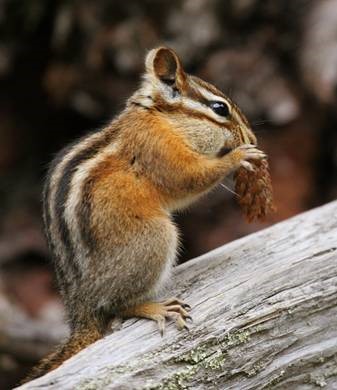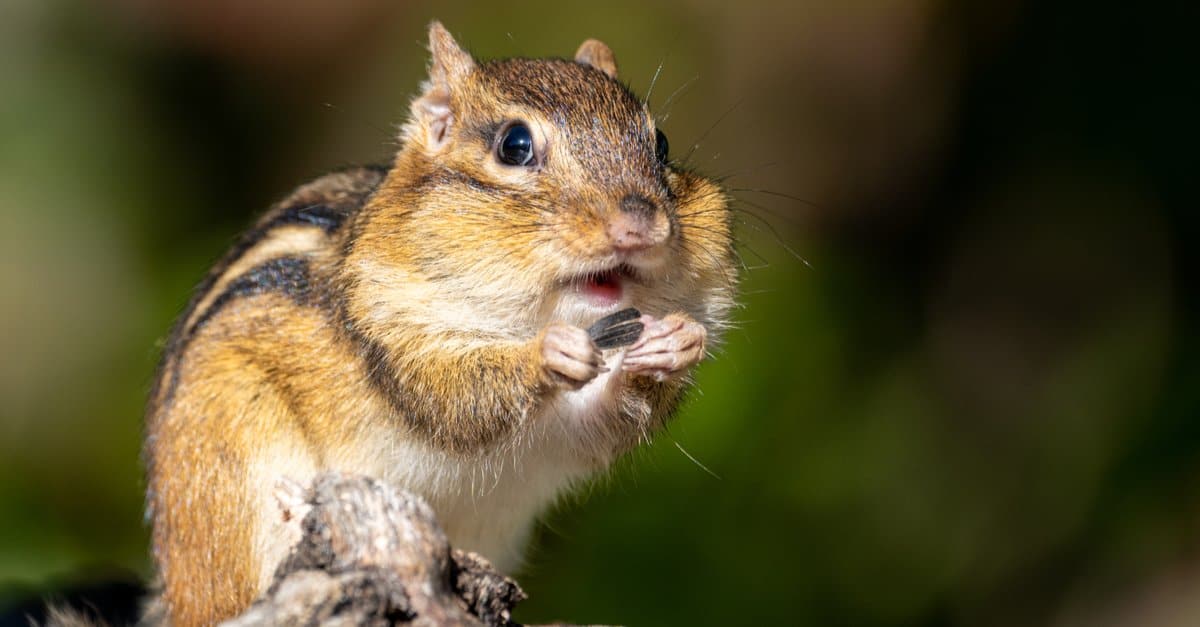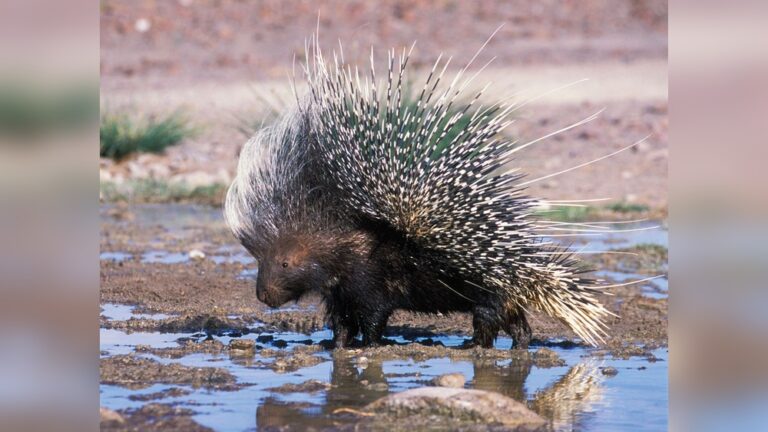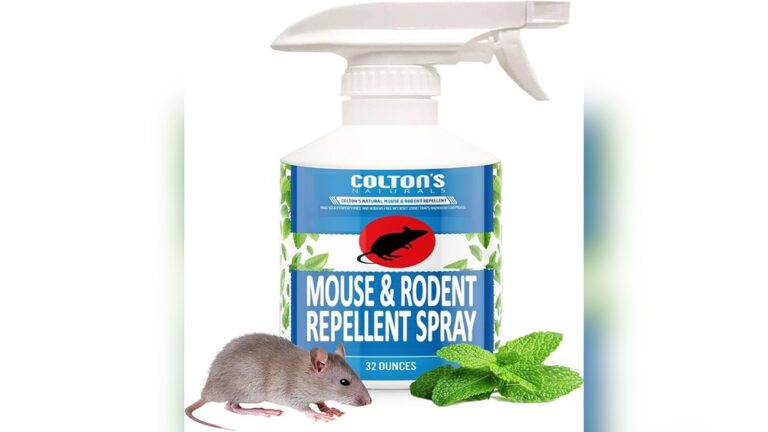How Long Do Chipmunks Live: Surprising Facts About Their Lifespan
Have you ever wondered how long chipmunks live? These tiny, lively creatures often catch your eye with their quick movements and adorable cheeks full of food.
But behind their playful nature lies a lifespan that might surprise you. If you’re curious about what affects their life expectancy and how long you might spot them in your backyard, this article is for you. Keep reading to discover the secrets of chipmunk longevity and what you can do to help these little animals thrive.
:max_bytes(150000):strip_icc()/__opt__aboutcom__coeus__resources__content_migration__mnn__images__2017__10__Eastern_chipmunk-002d11c556e04957a6a39ed1b86a5d2b.jpg)
Credit: www.treehugger.com
Chipmunk Lifespan Basics
Chipmunks are small rodents known for their quick movements and striped backs. Understanding their lifespan helps us learn about their survival and habits. Their life expectancy varies greatly depending on where they live and the conditions they face.
Many people wonder how long chipmunks live in nature compared to captivity. This knowledge gives insight into their behavior and challenges. Here, we explore the average lifespan in the wild, captivity, and what affects their longevity.
Average Lifespan In The Wild
Chipmunks usually live around 2 to 3 years in the wild. Predators, food availability, and weather impact this. Many chipmunks do not survive their first year. Those that do can sometimes reach 5 years.
Lifespan In Captivity
In captivity, chipmunks live longer due to steady food and safety. They can live up to 8 years or more. Without predators and harsh weather, their health improves. Care and environment quality also matter greatly.
Factors Affecting Longevity
Predators like hawks and snakes reduce chipmunk lifespan. Harsh winters and food shortages cause stress and death. Disease and accidents also play roles. Good shelter and food help chipmunks live longer.
Species Variations In Lifespan
Chipmunks belong to a group of small rodents with several species. Each species has its own typical lifespan. Understanding these differences helps us appreciate how diverse chipmunks are. Lifespan depends on factors like habitat, diet, and predators. Some live longer in the wild, while others thrive better in captivity. Let’s explore how long some common chipmunk species live.
Eastern Chipmunk Lifespan
The Eastern chipmunk is common in North America. It usually lives about 2 to 3 years in the wild. Some can reach up to 8 years in captivity. Predators and harsh weather often shorten their life. These chipmunks dig burrows for shelter and safety. Their lifespan varies with food availability and habitat quality.
Siberian Chipmunk Lifespan
Siberian chipmunks live mainly in Asia and parts of Europe. Their average lifespan is around 2 to 5 years in the wild. In captivity, they can live up to 7 years. They face threats from birds of prey and larger mammals. These chipmunks are active and good climbers. Their lifespan depends on how safe their environment is.
Other Common Species
Other chipmunk species include the Least chipmunk and the Yellow-pine chipmunk. Least chipmunks live about 1.5 to 3 years in the wild. Yellow-pine chipmunks have a lifespan of 3 to 5 years. Each species adapts differently to its surroundings. Survival challenges affect how long they live. Knowing these differences helps protect chipmunks better.
Predators And Survival Challenges
Chipmunks face many dangers in the wild. These dangers affect how long they live. Predators and the environment create constant challenges for chipmunks. Understanding these threats helps explain their survival and lifespan.
Common Predators
Many animals hunt chipmunks for food. Hawks and owls attack from the sky. Foxes and coyotes chase them on the ground. Snakes also pose a serious threat. These predators reduce chipmunk numbers quickly.
Environmental Threats
Chipmunks face dangers beyond predators. Harsh winters can make food scarce. Floods and fires destroy their homes. Human activities like deforestation shrink their living space. These threats make survival hard for chipmunks.
Impact On Lifespan
Dangerous conditions shorten chipmunks’ lives. Many chipmunks live only a few years in the wild. Predators kill many young chipmunks early. Harsh weather and habitat loss also reduce lifespan. Safe habitats help chipmunks live longer.
Habitat And Lifestyle Influence
Chipmunks’ lifespan depends a lot on where and how they live. Their habitat and daily habits shape how long they survive. Different environments bring different challenges and food supplies. These factors affect their health and safety. Understanding these helps explain why chipmunks live longer in some places than others.
Urban Vs. Rural Living
Chipmunks in cities face many dangers. Cars, pets, and people make life tough. Food can be scarce or unhealthy. Noise and pollution add stress. Rural chipmunks find more natural food and shelter. They avoid traffic and loud noises. These conditions often help rural chipmunks live longer.
Seasonal Behavior And Hibernation
Chipmunks change their behavior with seasons. They store food to survive winter. Some chipmunks sleep deeply in cold months. Hibernation helps save energy and avoid harsh weather. This rest period can extend their life. Without it, chipmunks use more energy and weaken faster.
Diet And Nutrition Effects
Chipmunks eat nuts, seeds, fruits, and insects. A good diet keeps them healthy. Poor nutrition leads to weakness and illness. Urban chipmunks might eat human food, which lacks nutrients. Rural chipmunks find fresh, natural food. Healthy eating supports their immune system and boosts lifespan.
Reproduction And Lifespan Link
The link between reproduction and lifespan in chipmunks reveals key survival patterns. Reproduction affects how long chipmunks live and their overall health. Understanding this connection helps us learn about their life cycle and challenges.
Reproduction uses energy, which impacts lifespan. More babies may mean shorter lives for chipmunks. Yet, the chance to breed early and often can improve their species’ survival.
Breeding Age And Frequency
Chipmunks start breeding around one year old. They can have two to three litters each year. Each litter usually has three to five babies. Frequent breeding uses energy but spreads their genes fast.
Offspring Survival Rates
Not all baby chipmunks survive to adulthood. Predators and weather reduce their numbers. Higher survival rates increase chances for parents to live longer. Babies surviving means the family line continues strong.
Parental Care Impact
Chipmunk parents protect and feed their babies carefully. Good care raises offspring survival and health. Healthy babies grow into strong adults. Strong adults often live longer and breed more.

Credit: www.crittercontrol.com
Surprising Lifespan Facts
Chipmunks live shorter lives than many other animals. Still, some facts about their lifespan can surprise you. These small creatures have varied lifespans depending on the environment and species. Wild chipmunks face many dangers that can shorten their lives. Yet, some chipmunks live much longer than usual. Let’s explore some surprising lifespan facts about chipmunks.
Record Age Chipmunks
The oldest chipmunks live up to 8 years in the wild. This age is rare because predators and diseases cut life short. In captivity, chipmunks can live up to 10 years. These cases are unusual but show their full potential lifespan.
Unusual Longevity Cases
Some chipmunks have been known to live beyond 10 years. These cases are very rare and often happen in protected environments. Good care, food, and no predators help chipmunks live longer. Scientists study these cases to learn more about chipmunk health.
Research Findings
Studies show chipmunks usually live 2 to 3 years in the wild. Many die in their first year due to dangers. Research also finds that chipmunks with good shelter and food live longer. These findings help protect chipmunk habitats and improve their survival chances.

Credit: a-z-animals.com
How Smart Pets Lover Can Help You with How Long Do Chipmunks Live
Turning Chipmunk Lifespan Insights Into Learning Moments
Understanding how long chipmunks live opens up more than just curiosity—it’s a gateway to appreciating their survival challenges and habitat needs. When you explore topics like Predators and Survival Challenges or the Habitat and Lifestyle Influence, you’re stepping into a fascinating world that teaches us about resilience and adaptation in the wild.
For pet parents and nature lovers alike, these insights encourage us to think about the environments we share with wildlife and how our actions impact their lifespans. Observing chipmunks’ natural behavior can inspire responsible outdoor practices and a deeper respect for all creatures.
- Spot patterns in reproduction and lifespan to understand animal life cycles better.
- Notice how habitat changes might affect local wildlife populations.
- Use this knowledge to foster empathy and better stewardship of nature.
At Smart Pets Lover, we believe every story—from a wagging tail to a chipmunk’s scurry—connects us. If you want to dive deeper into chipmunk care or wildlife-friendly practices, feel free to reach out to our community at [email protected]. After all, learning about these little creatures enriches our bond with the natural world and every pet that shares our lives.
Frequently Asked Questions
How Long Do Chipmunks Live In The Wild?
Chipmunks typically live 2 to 3 years in the wild. Predators and environmental challenges often limit their lifespan. Some chipmunks may live up to 4 years with favorable conditions. Their survival depends on food availability and habitat safety.
What Is The Lifespan Of Chipmunks In Captivity?
In captivity, chipmunks can live up to 8 years. Controlled environments with regular food and no predators increase their lifespan. Proper care and veterinary attention also contribute to their longer life. Captive chipmunks often live much longer than wild ones.
What Factors Affect Chipmunk Lifespan?
Predation, food availability, disease, and habitat quality affect chipmunk lifespan. Harsh winters and human activity also play a role. Healthy environments and fewer threats help chipmunks live longer. Their lifespan varies greatly based on these conditions.
Do Chipmunks Hibernate To Survive Winter?
Yes, chipmunks hibernate to survive winter months. They enter a state of torpor, reducing metabolism to conserve energy. Chipmunks wake periodically to eat stored food. Hibernation helps them survive cold and food-scarce seasons, impacting their overall survival chances.
Conclusion
Chipmunks usually live between 2 to 3 years in the wild. Some may live longer in safe environments. Their lifespan depends on food, weather, and predators. Knowing how long chipmunks live helps us appreciate these small creatures. They play an important role in nature.
Watching chipmunks can bring simple joy. Remember, their life is short but full of activity. Keep respecting wildlife and their natural homes.





